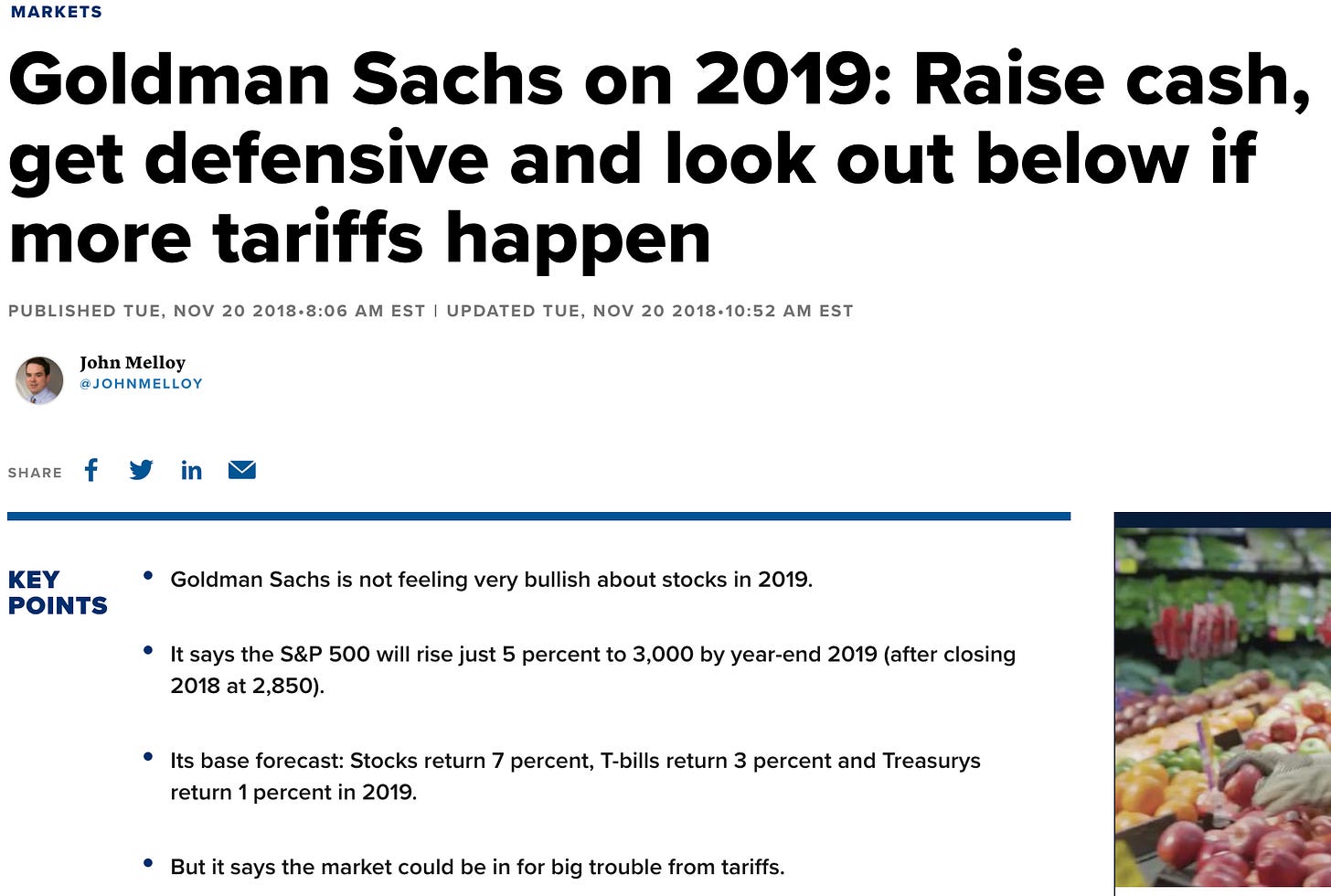Market Forecasts
It’s that time of year when all of the big banks, brokerage houses, and stock market analysts make their market predictions for the coming year.
We seek financial forecasters in a desperate attempt to bring certainty to an unknowable future. Especially when it comes to something like the stock market where a part of our financial future is tied to its performance.
It may surprise you to know that these forecasts have a dismal track record, but it really shouldn’t. Why do we think that these people can predict the future? They don’t have crystal balls. No one can tell you what the stock market will do year to year, and if someone actually could, they sure wouldn’t be telling the general public about it.
Articles in recent years are rife with errors trying to predict the future and I wanted to show a few headlines compared to the actual returns the following year because I find it amusing.
2020 forecasts:
Even with the crazy year we’ve had, the S&P 500 is up about 15%.
2019 forecasts:
In 2019, the S&P 500 rose about 29%.
2018 forecast:
In 2018, the S&P 500 fell about 6%.
Just how bad is the industry at making yearly predictions? They’re worse than what statistical randomness would predict. Examining forecasts from major investment institutions shows that you would have a better chance of being right if you flipped a coin rather than relying on their predictions.
A problem most forecasts encounter is they’re far too narrow. The majority of forecasts predict a range of returns from a -5% loss to a 9% gain. Yes, markets have averaged high single-digit returns over long periods of time, but how they arrive at that average is very uneven.
And if it’s this hard to predict general market trends, imagine the task of trying to foresee individual stock movements.
While a large number of forecasters call for modest market inclines each year, there’s a special subgroup that is always looking for a reason to predict a recession. These people are often referred to as perma-bears in the financial industry. According to their predictions, every year there will be some sort of impending doom that we need to be worried about. Seeing as bear markets (market drops of 20% or more) happen about every 4 years, these people will occasionally be vindicated. As the saying goes, a broken clock is accurate twice a day, but you would never use it to tell time.
“Forecasts usually tell us more about the forecaster than of the future.” - Warren Buffet
Now, picking on these forecasts isn’t entirely fair to the people who are making them. They know that they will likely be wrong, but are just trying to give an educated guess. The problem arises when the people who are reading their words use them as support for an ill-advised investment strategy.
There is no evidence that these market forecasts should be taken as anything other than guesses. And if these forecasters who study the markets for a living can’t accurately predict what will happen, I would be hesitant to heed the predictions of a coworker or brother-in-law who thinks he has it all figured out.
So without further ado, here’s my prediction for what will happen next year:
Some stocks will go up and others will definitely go down. There are some countries and sectors that will perform better than the rest. With that being said, I think it’ll be a great year to save money and invest.
Thanks for reading!








